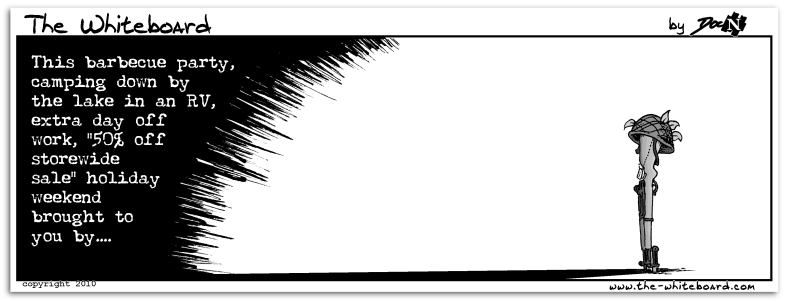Fridays at the Pentagon
By JOSEPH L. GALLOWAY
McClatchy Newspapers
Over the last 12 months, 1,042 soldiers, Marines, sailors and Air Force
personnel have given their lives in the terrible duty that is war. Thousands
more have come home on stretchers, horribly wounded and facing months or
years in military hospitals.
This week, I’m turning my space over to a good friend and former roommate,
Army Lt. Col. Robert Bateman, who recently completed a year long tour of
duty in Iraq and is now back at the Pentagon.
Here’s Lt. Col. Bateman’s account of a little-known ceremony that fills
the halls of the Army corridor of the Pentagon with cheers, applause and
many tears every Friday morning. It first appeared on May 17 on the Weblog
of media critic and pundit Eric Alterman at the “Media Matters for America”
website.
“It is 110 yards from the “E” ring to the “A” ring of the Pentagon. This
section of the Pentagon is newly renovated; the floors shine, the hallway is
broad, and the lighting is bright. At this instant the entire length of the
corridor is packed with officers, a few sergeants and some civilians, all
crammed tightly three and four deep against the walls. There are thousands
here.
“This hallway, more than any other, is the `Army’ hallway. The G3 offices
line one side, G2 the other, G8 is around the corner. All Army. Moderate
conversations flow in a low buzz. Friends who may not have seen each other
for a few weeks, or a few years, spot each other, cross the way and renew.
“Everyone shifts to ensure an open path remains down the center. The air
conditioning system was not designed for this press of bodies in this area.
“The temperature is rising already. Nobody cares. 10:36 hours: The
clapping starts at the E-Ring. That is the outermost of the five rings of
the Pentagon and it is closest to the entrance to the building. This
clapping is low, sustained, hearty. It is applause with a deep emotion
behind it as it moves forward in a wave down the length of the hallway.
“A steady rolling wave of sound it is, moving at the pace of the soldier
in the wheelchair who marks the forward edge with his presence. He is the
first. He is missing the greater part of one leg, and some of his wounds are
still suppurating. By his age I expect that he is a private, or perhaps a
private first class.
“Captains, Majors, Lieutenant Colonels and full Colonels meet his gaze and
nod as they applaud, soldier to soldier. Three years ago when I described
one of these events, those lining the hallways were somewhat different. The
applause a little wilder, perhaps in private guilt for not having shared in
the burden … yet.
“Now almost everyone lining the hallway is, like the man in the
wheelchair, also a combat veteran. This steadies the applause, but I think
deepens the sentiment. We have all been there now. The soldier’s chair is
pushed by, I believe, a full colonel.
“Behind him, and stretching the length from Rings E to A, come more of his
peers: each private, corporal, or sergeant is assisted as need be, by a
field-grade officer.
“11:00 hours: Twenty-four minutes of steady applause. My hands hurt, and I
laugh to myself at how stupid that sounds in my own head: my hands
hurt…Please ! Shut up and clap. For twenty-four minutes, soldier after
soldier has come down this hallway- 20, 25, 30… Fifty-three legs come with
them, and perhaps only 52 hands or arms, but down this hall came 30 solid
hearts.
“They pass down this corridor of officers and applause, and then meet for a
private lunch, at which they are the guests of honor, hosted by the
generals. Some are wheeled along. Some insist upon getting out of their
chairs, to march as best they can with their chin held up, down this
hallway, through this most unique audience. Some are catching handshakes and
smiling like a politician at a Fourth of July parade. More than a couple of
them seem amazed and are smiling shyly.
“There are families with them as well: the 18-year-old war-bride pushing
her 19-year-old husband’s wheelchair and not quite understanding why her
husband is so affected by this, the boy she grew up with, now a man, who had
never shed a tear is crying; the older immigrant Latino parents who have,
perhaps more than their wounded mid-20’s daughter, an appreciation for the
emotion given on their child’s behalf. No man or woman in that hallway,
walking or clapping, is ashamed by the silent tears on more than a few
cheeks. An Airborne Ranger wipes his eyes only to better see. A couple of
the officers in this crowd have themselves been a part of this parade in the
past.
“These are our men & women, broken in body they may be, but they are our
brothers & sisters, and we welcome them home. This parade has gone on, every
single Friday, all year long, for more than four years.
“Did you know that?
“The media haven’t yet told the story.”
Just . . . damn.


